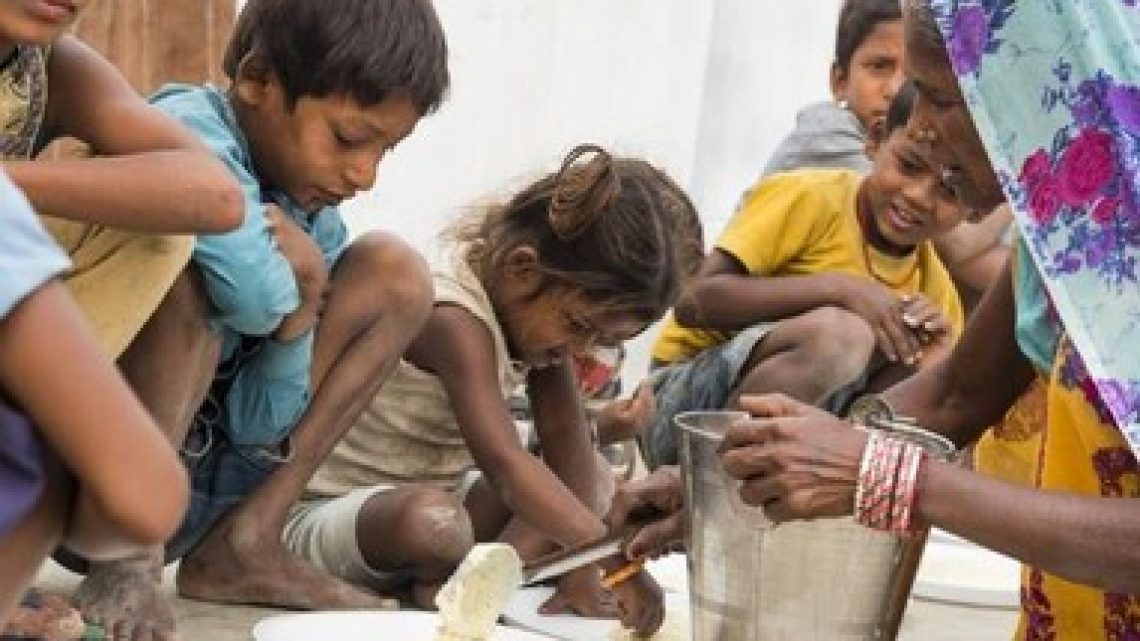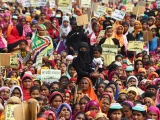
India Ranked 105th in Global Hunger Index: A Stark Reality amid Claims of Progress
October 22, 2024New Delhi –The latest Global Hunger Index (GHI) report has ranked India at 105th position, raising serious concerns about the country’s status amid narratives of ‘shining India’ and ‘Digital India.’ With a population projected to reach 1.45 billion in 2024, approximately 83 million people live below the poverty line, struggling to survive on less than $2.15 a day.
Despite having $689.5 billion in foreign reserves, India’s wealth has done little to alleviate rampant inequality. Shockingly, 163 million people are classified as multidimensional poor, suffering deprivations in health, education, and living conditions. Homelessness remains a significant issue, with 1.8 million Indians without shelter and nearly 100 million living in slums under inhumane conditions.
Access to basic sanitation is also a critical concern, with 15% of the population—about 210 million people—lacking adequate facilities. While the government allocates $74.3 billion to its defense budget for FY 2024-25, constituting 15% of total spending, only 5.5% of GDP is directed towards infrastructure and welfare programs, falling short of addressing deep-rooted poverty and underdevelopment.
The situation is dire for children, with 6.7 million suffering from severe malnutrition—nearly half of all such children across 92 countries. A Harvard study highlights that the rate of malnourished children in India is comparable to nations like Guinea and Liberia. Alarmingly, 19.3% of India’s population has gone without food for 24 hours, a stark contrast to just 0.1% in countries such as Costa Rica.
Under the Modi-led BJP regime, systemic inequalities disproportionately affect minority communities, particularly Muslims and Dalits. This religiously motivated economic marginalization exacerbates hunger and poverty, calling into question the government’s development narrative.
As many Indians seek jobs abroad, including in Israel, to escape dire local conditions, the failure to provide adequate employment opportunities at home is glaring. This situation highlights the flaws in India’s projected image as a rapidly developing nation while neglecting basic human needs due to governmental corruption.
The United Nations is expected to call for investigations into India’s domestic policies that contribute to rising inequality and hunger. Critics argue that India’s tech-driven agricultural initiatives prioritize food exports over domestic needs, showcasing a selfish economic policy detrimental to human survival.
Furthermore, India’s globally influential Bollywood industry often distracts from severe domestic issues like hunger and malnutrition. While the world perceives India as a vibrant and prosperous nation, millions suffer in silence, hidden behind the glitz of the entertainment sector.
Bollywood plays a significant role in crafting an illusion of prosperity, diverting attention from the harsh realities of poverty and malnutrition. The stark contrast between the cinematic portrayal of empowered women and the real crises of violence and hunger faced by many women in India illustrates the gap between representation and reality.
India’s low GHI ranking and severe hunger levels highlight a flawed development narrative that fails to address critical human needs. The government’s use of Bollywood as a propaganda tool only serves to mask the rampant human rights abuses and societal challenges that demand urgent attention.

